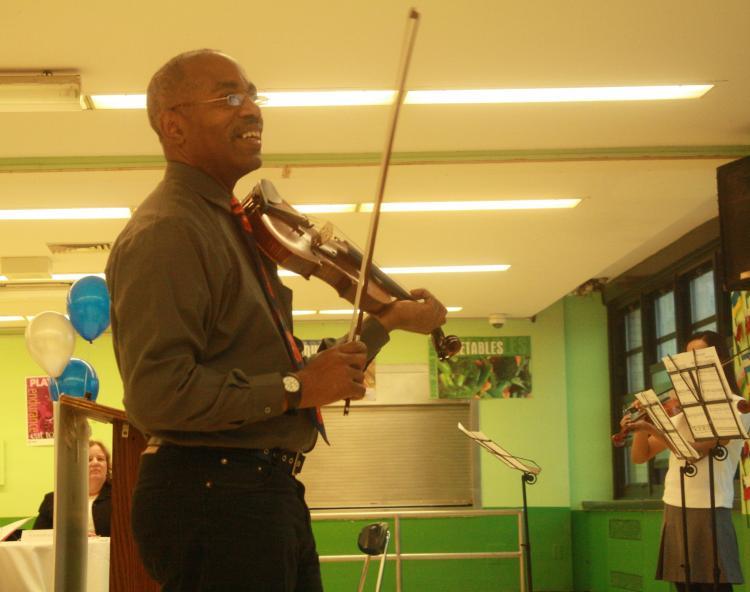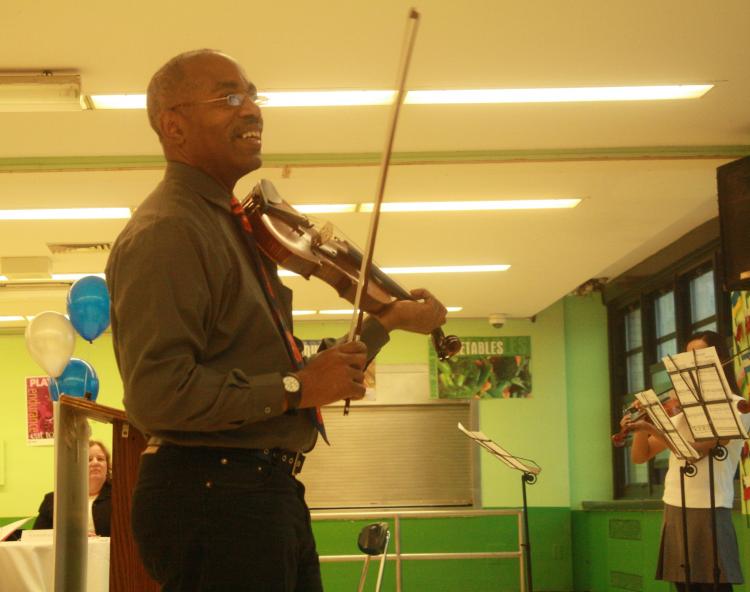Some artists, the shy ones, remain invisible to the public, yet their work does much to stimulate future generations—violist Kenneth Edwards is an example.
Kenneth Edwards studied at Juilliard in the 1970s when we were both students there. I had the pleasure of playing with Kenneth in the Symphony of the New World Octet sponsored by the Ford Foundation.
I remember several performances of the Mendelssohn Octet and the Spohr Octet because, as an 18-year-old with little chamber music experience—just going on talent and instincts, I had my hands full due to my inability to master the viola sufficiently at the time.
Contrary to what many violinists think—that little difference exists between a violin and a viola—keen ears will reveal that Ferrari reflexes are not always necessary in the Bentley.
The similarity between the viola and violin is that both need to be played well and sound good. Despite my being scared at the time, I remember that time fondly. Sitting next to Ken was fun. Ken was always supportive and always humble. Although the music was always there—that is, although he played the heck out of the viola, he was never cocky—never. He was incapable of putting on an act.
Ken Edwards was one of the best violists studying at Juilliard at the time. He was a very natural player with a beautiful bow arm. He cared about getting better and loved music.
His teacher, former principal violist of the New York Philharmonic William Lincer, was a warm friend to me since he was a dear friend of my father, the legendary Oscar Shumsky. I knew that Lincer was proud to have Ken Edwards as his student.
As a youngster growing up in Harlem, Ken was often accosted by tough guys beating him up for the little he had in his wallet. They threatened to take the viola from him and tormented him for trying to be a part of white culture.
He was a terrific son and took care of his ailing mom.
He delivered newspapers on his bike.
I mention background details because they describe Ken’s way of playing and living. They point to his character. Currently, Ken is teaching violin as part of an after school program in the South Bronx. He has not changed. He’s still a great guy, encouraging youngsters to learn the basics—the very basics of music. I wonder if people know the value of a musician like this—one working behind the scenes—to our society?
Certainly, he deserves a Philharmonic job or a quartet spot. Maybe he preferred freedom from “You should be doing this” or “Why aren’t you doing that?”
Freedom from competition and ego
Today many hotshot players are bent on exterminating the competition through every aggressive bow stroke. Playing has been reduced to a machine gun proficiency at a high decibel level. The music is lost behind competitive egos.
This is not to say that technical proficiency makes poor music. My father, as well as my uncle Bill Carboni, knew and adored one of the giants of all time—Fritz Kreisler. While Heifetz dazzled with a pearly runs at supersonic speeds (though make no mistake, he pierced your heart as well), Kriesler brought you back to earth with humanity. You ended up reflecting on the beauty of a lost love or of a cafe house in his beloved Vienna.
Without the humanity beneath the technicality, music is meaningless. Today our hearts are closed and “perfection” has acquired only a mechanical meaning. We should change the word to something other than “perfection” or use it when we describe playing that is more profound and meaningful. What happens when you play chamber music with a truly good human being who not only has the goods, loves music, and is supportive? Beautiful things happen.
Eric Shumsky is a concert violist. For more information, see www.shumskymusic.com.






